That brick wall probably looked good at some point, but then someone covered it with paint. Why? Who knows. We could sit around questioning the aesthetic preferences of someone else till we’re blue in the face. But at the end of the day, that classic brick surface still has a layer of old, rubbery garbage smeared across it, and we still want to restore the original look. It’s a challenge, so we wrote this article on how to remove paint from brick without ruining it.
Table of Contents
How to Remove Paint from Brick: Inspect Before You Quote
Unfortunately, the top 10 “stubborn jobs” list probably includes paint removal from brick. Many DIYers have begun the job only to be disappointed with the results. Or, perhaps they’ve been pleased with the results, but have unwittingly weakened the brick in the process.
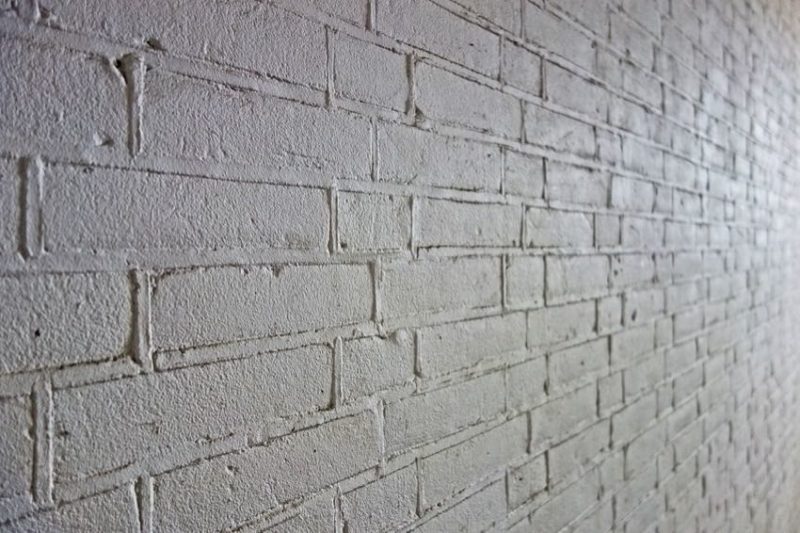
That being the case, if you have clients that have requested a quote, it’s wise to inspect the job thoroughly first. You may find that the best-case scenario still won’t yield the desired results. It’s more likely you’ll find that you need to adjust your quote for this often time-consuming job. If you follow some of these tips for removing paint from brick surfaces, you might just save some time and mitigate some frustration.
Assessing the Integrity of the Wall
First, you’ll need to determine if the brick will look nice enough to be unpainted. Ask your client if you can inspect and even test a removal process in an inconspicuous area. How many layers of paint are there? What is the brick’s condition? It’ll be much easier to quote (or not quote) using a test area. After testing, you and your client might decide that the cost of paint removal outweighs the benefits, and they’ll just learn to live with the painted brick.
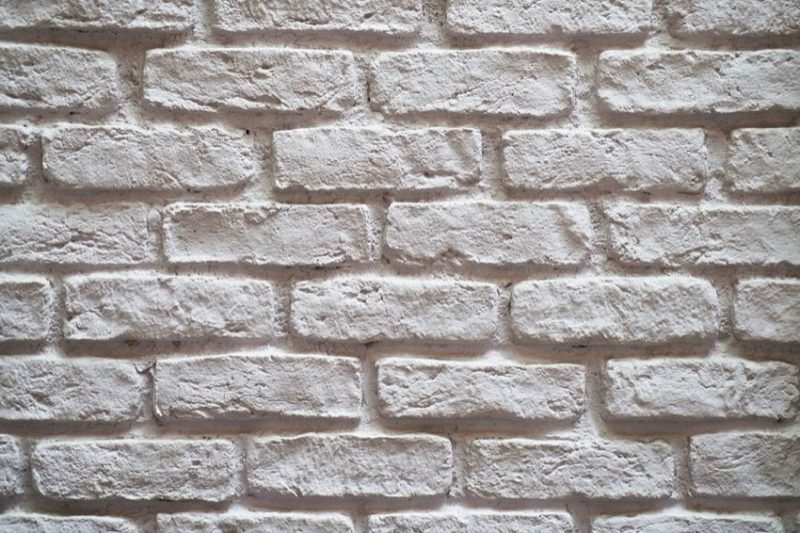
Avoid Pressure Washing or Sandblasting
However, if the project gets the green light, there are a few things you’re going to want to avoid. First, while it seems like it might make sense to sandblast or pressure wash the painted brick, don’t. This treatment can weaken or damage older, brittle brick. That might be the reason it was painted in the first place.
It’s also possible that if the paint is old, it might contain lead that sandblasting releases into the air. Although sandblasting or pressure washing can reach all the nooks and crannies of porous brick, it’s often too risky.
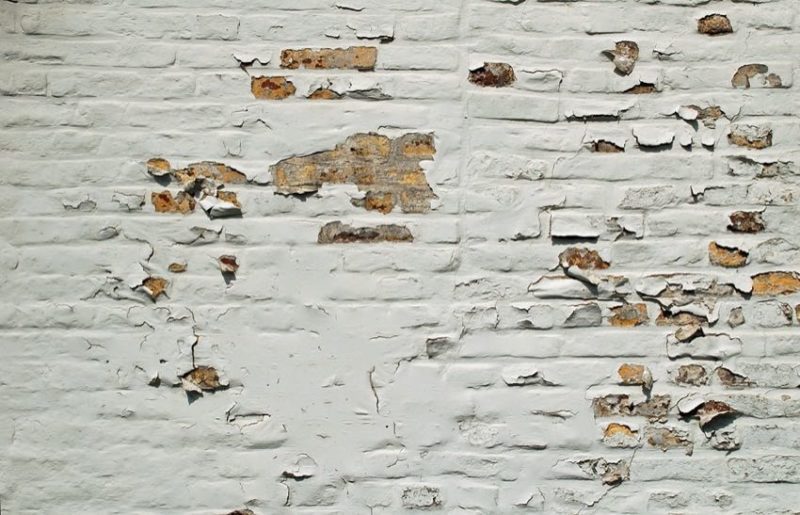
Avoid Using Caustic Chemicals
You’re also going to want to avoid caustic chemicals when removing paint from brick. These solutions tend to have the same adverse effects on older brick surfaces as sandblasting does. It can also make old brick more brittle.
Ultimately, you’re going to want to find a solution that does the least amount of damage to the underlying brick, and using these methods could potentially leave you with a bigger problem than a coat of stubborn paint.
So what to do? Read on. There’s another solution.
How to Remove Paint from Brick Using Gels and Paper
One of the most effective methods for removing paint from brick surfaces comes via a two-step process. A gel or paste compound, used in conjunction with a paper or fiber material, makes paint removal a less tiresome affair.
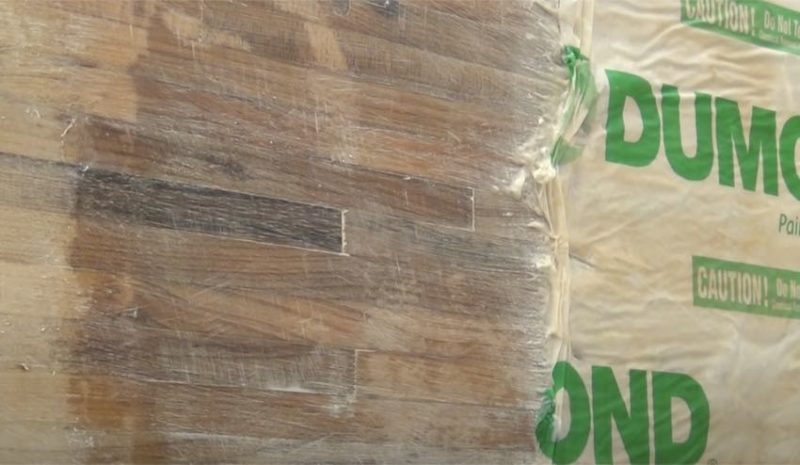
Basically, you’ll scrape off any peeling paint that might be present, and then apply the remover. Fiber or paper strips are applied next. As the remover cures, usually in 24 hours or less, a chemical reaction occurs. The paint bonds with the fiber and you gently peel it away, taking the paint with it.
Of course, there will likely be some stubborn paint that will put up a fight, but agitating the brick with a drill and fiber brush bit can remove any remaining paint. You may be surprised how well this works and it doesn’t make the brick brittle.
Final Thoughts on How to Remove Paint from Brick
Appropriate safety gear is a must when working with chemicals. Protect eyes, skin, and lungs from harm with the right PPE. It’s also a wise idea to tape down a plastic drop cloth to protect everything under the work area.
While a chemical application is probably the best course for this job, it can create a rinse-water disposal challenge. You’ll need to check local codes for that. And be sure to read the labels carefully. Some chemicals can weaken the brick. By applying the right chemical stripper and agitating (for example, using a cordless drill with a fiber brush bit) or scraping properly, you can remove a great deal of the paint. A second application might be necessary.
We hope you’ve benefitted from this article. If you’re a Pro and have any tips for removing paint from brick, please share them in the comments below.

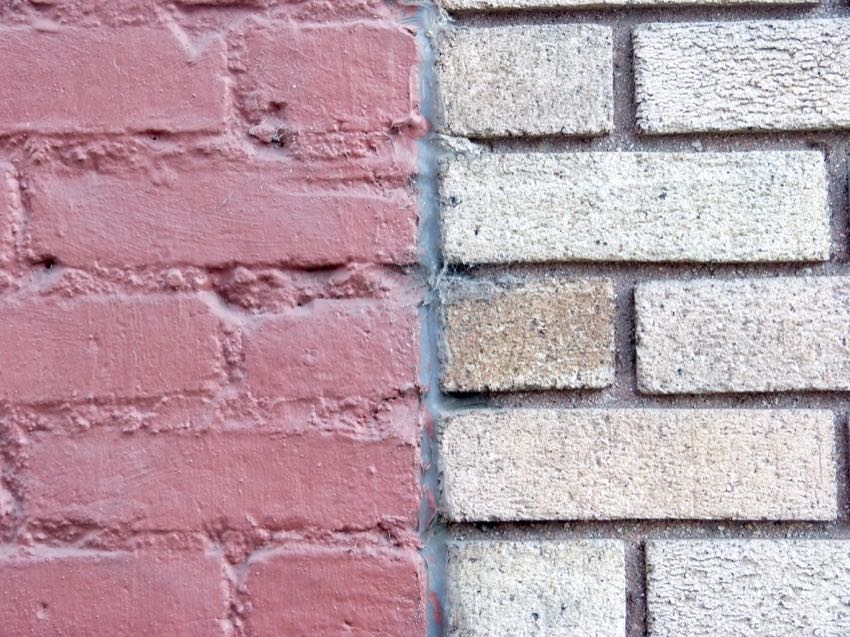
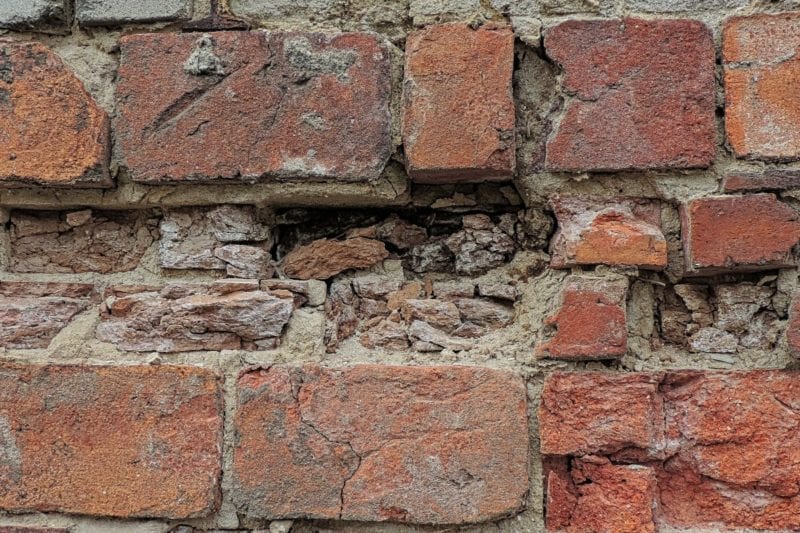


This is the perfect kind of useful articles we need (the web is full of tool reviews, but having good advice for difficult jobs is better”)
Thank you for sharing! Very useful article.